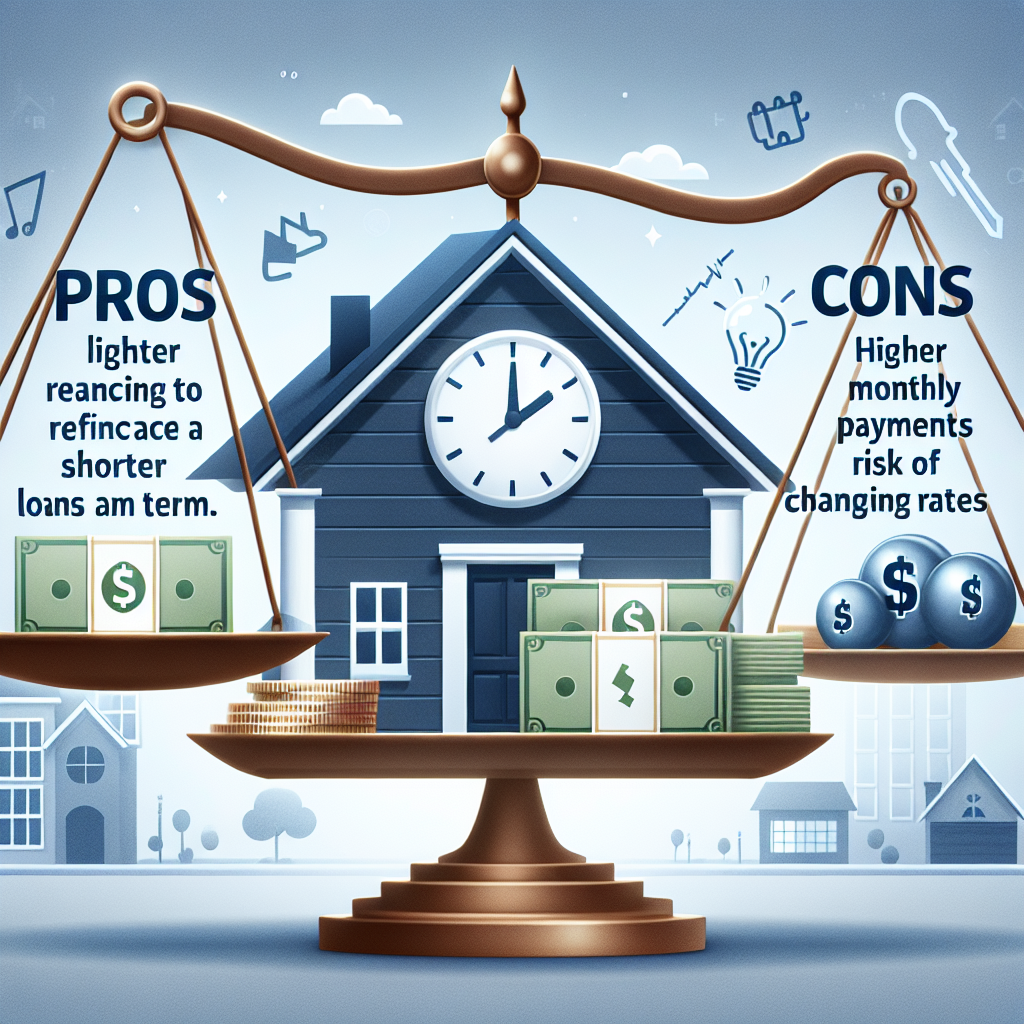In today’s ever-changing financial landscape, homeowners are constantly seeking ways to optimize their mortgage payments and overall financial health. One strategy that has gained traction is refinancing to a shorter loan term. While this method can provide several benefits, it also comes with its own set of challenges. In this article, we will explore the pros and cons of refinancing to a shorter loan term to help you make an informed decision.
What is Refinancing to a Shorter Loan Term?
Refinancing to a shorter loan term involves replacing your existing mortgage with a new loan that has a reduced repayment period, typically ranging from 10 to 20 years. This can be particularly appealing for homeowners looking to pay off their mortgage faster and reduce the interest paid over the life of the loan.
Pros of Refinancing to a Shorter Loan Term
1. Significant Interest Savings
One of the most compelling reasons to refinance to a shorter loan term is the potential for substantial savings on interest payments. Shorter loans generally come with lower interest rates, meaning you pay less interest over time. Even a small reduction in interest can equate to significant savings when compounded over the life of the loan.
2. Faster Equity Build-Up
With a shorter loan term, your monthly payments primarily go towards the principal, which helps you build equity more quickly. A faster accumulation of equity can provide you with greater financial flexibility and open up options for loans against your home in the future.
3. A Sense of Financial Freedom
Many homeowners find the idea of a mortgage-free life appealing. Refinancing to a shorter loan term can help you achieve that goal faster. Paying off your mortgage earlier can provide a sense of accomplishment and reduce financial stress, allowing you to redirect funds toward other goals such as retirement savings or investments.
4. Improved Monthly Cash Flow
While the monthly payments on a shorter loan term are typically higher, the overall debt payoff can free up cash flow in the long run. Once your mortgage is paid off, you will have more disposable income to allocate toward savings, investments, or leisure activities.
Cons of Refinancing to a Shorter Loan Term
1. Higher Monthly Payments
The most immediate downside to refinancing to a shorter loan term is the increase in your monthly payment. Shorter loans require paying down the principal more quickly, which can put pressure on your budget. It’s vital to ensure that your current financial situation can accommodate these higher monthly payments.
2. Closing Costs
Just like any refinancing process, refinancing to a shorter loan term typically involves closing costs. These costs can add up and might offset some of the savings you’d gain from lower interest payments. Carefully assess whether these costs make financial sense in the context of your overall financial strategy.
3. Reduced Financial Flexibility
With higher monthly payments, your financial flexibility may be reduced. For example, should you need to deal with unexpected expenses, the increased mortgage financial commitment may leave you with less available cash to cover those costs. It’s essential to weigh your current financial situation and whether you can handle any potential changes.
4. Not Ideal for Everyone
Refinancing to a shorter loan term isn’t a one-size-fits-all solution. It may not be suitable for homeowners nearing retirement, those with tight budgets, or individuals who are planning to move in the near future. If you fall into one of these categories, it’s crucial to carefully evaluate whether this strategy aligns with your long-term financial goals.
When Should You Consider Refinancing?
Before deciding to refinance to a shorter loan term, assess your financial situation, such as your income stability, current debts, and overall financial goals. If you have a solid plan in place and are comfortably able to handle the increased monthly payments, refinancing to a shorter loan term can be a wise move.
Conclusion
Refinancing to a shorter loan term can offer substantial benefits, including significant interest savings and a faster debt payoff. However, it also comes with higher monthly payments and closing costs, which can reduce your financial flexibility. Before making a decision, weigh the pros and cons carefully to determine if this strategy aligns with your financial goals and lifestyle. Consulting with a financial advisor can also provide valuable insights tailored to your individual circumstances, helping you make the best choice for your future.

